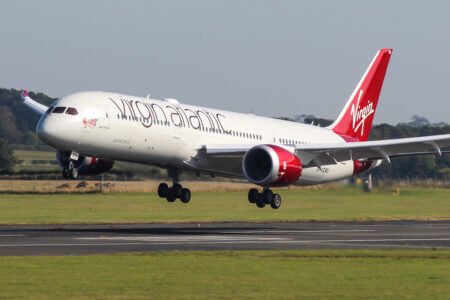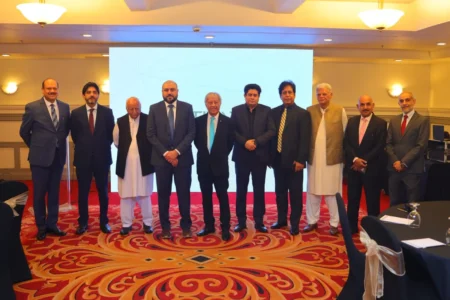Written by Ch. Faisal Mahmood
We have dwelt on the subject of Civil Aviation for long and more so since the Government put a New Civil Aviation Policy on the anvil. Cumulatively, we concerned ourselves with the misfortunes of our national carrier and travelling public, both tracing back to the adoption of non-reciprocal Open Sky Policy.
While commending our posture on the subject, our readers have pointed out its similarity with the United States’ three major airlines asking for a Fair Sky Policy as regards the State owned carriers in the Gulf. A 3 versus 3 debate cum war is reignited on the Open Skies Agreement between the Big Three U.S. airlines and their Middle East Gulf counterparts, the Partnership for Open & Fair Skies wrote a letter last week to President Donald Trump, used the public forums to get the word out. Instead of sending it directly to The White House, the lobby group took out ads in different newspapers and on electronic Media.
The advertisements come on the heels of Emirates’ new, year-round flight from Athens, Greece to Newark, New Jersey. U.S. Aviation workers rallied at Newark Liberty International Airport to protest the flight for allegedly violating the Open Skies international agreement with the United States.
The American Airlines, Delta and United, as well as several aviation unions urged the administration to address trade violations by the United Arab Emirates (UAE) and Qatar in which the U.S. based carriers allege that Emirates, Etihad and Qatar airlines have received $50 billion in government subsidies over the last dozen years.
The drama began more than two years ago when The Big Three put together a 55-page report on the allegations and presented it to the Obama Administration in January of 2015.
However, our similarity with them ends here; our base is different.
We go by what Pakistan’s Open Sky Policy has given to Pakistan. This is a legitimate and common ground on which policies are studied for new actions in national interest.
The current aviation policy has had a direct negative impact on PIA and Pakistan’s private sector airlines have not had the space to grow as would be justified from the volume of traffic in and from the country. Travelers have not received any reduction in ticket prices; they have rather been subjected to rank dictatorial attitude towards them and their travel agents. Carriers have subjected travel agents to zero commission and are competing directly with them; leading to extra financial cost and unnecessary inconvenience to the traveler. Carriers earning well here give no economic spinoffs to local communities and are reported to be generally conducting themselves imperiously. There is no significant employment generated; fewer local staff are employed and given to work more on less remuneration.
Authors of the New Aviation Policy should look deeper into the industry and its work culture than they have given evidence of; they should adopt the consultative process, which we have advocated previously and give our country a civil aviation environment worthy of its geographical and human resource positives.



